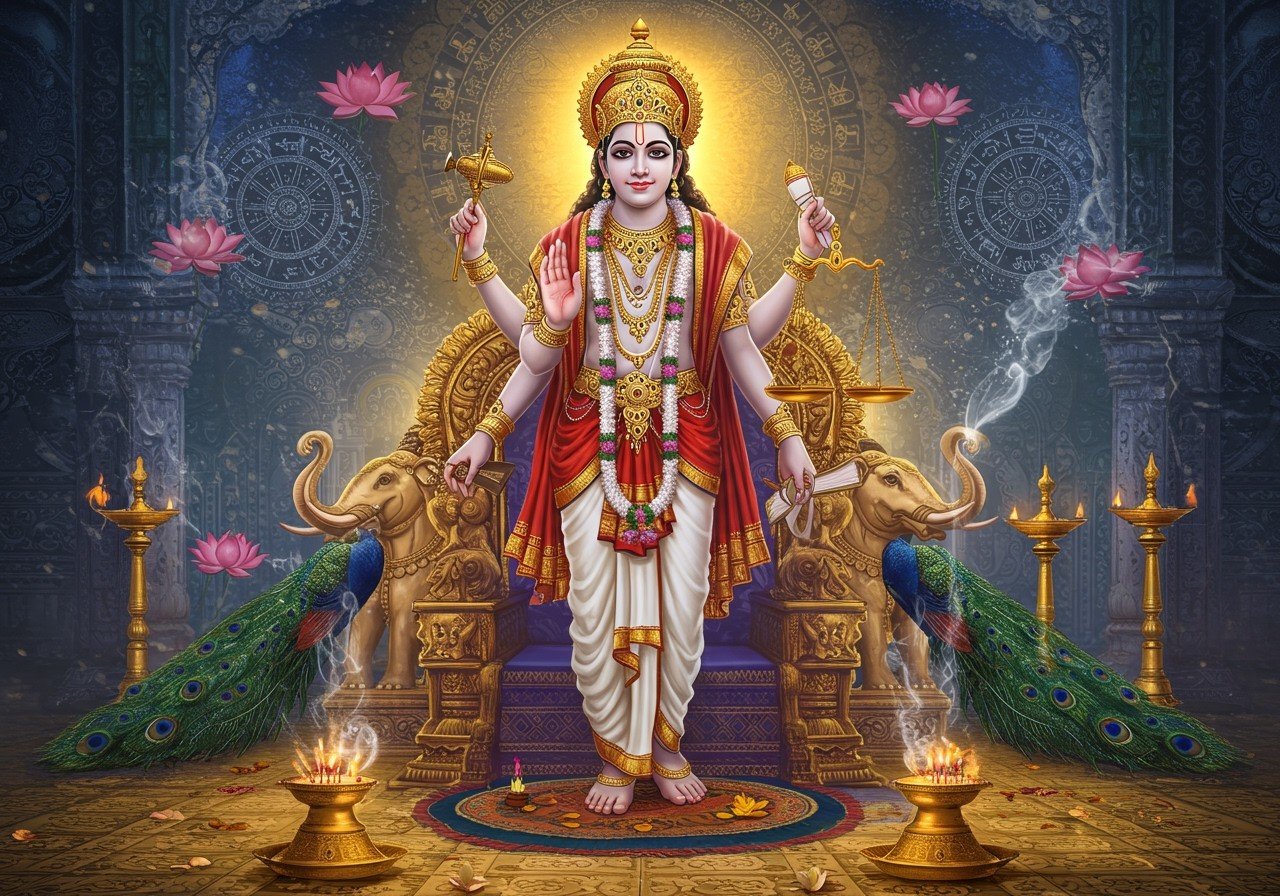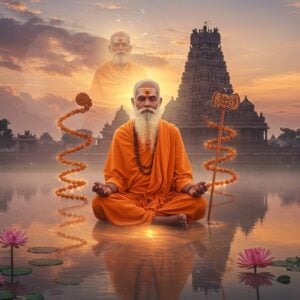
In Hindu philosophy, dharma holds profound significance, representing duty, morality, and cosmic law. It guides individuals to live in harmony with universal principles. Hindu deities often personify these abstract concepts, helping people align their actions with righteousness. Dharma Devata, a key figure in this pantheon, embodies righteousness and justice.
Who is Dharma Devata?
Dharma Devata is a spiritual figure representing the cosmic law of dharma. As the guardian of righteousness and justice, Dharma Devata upholds the moral order of the universe. Depictions in Hindu scriptures and art often portray Dharma Devata with divine attributes, symbolized by balance scales, denoting justice and fairness. Dharma Devata serves as a guide, inspiring individuals to follow the righteous path in their personal and social lives.
Understanding Dharma Devata
Dharma Devata reflects dharma’s philosophical roots, encompassing duty, law, and righteousness. As a divine force, Dharma Devata maintains cosmic balance by enforcing dharma. This concept isn’t limited to a single deity; it is woven into the worship of other gods who embody righteousness. During rituals and prayers, devotees invoke Dharma Devata seeking guidance and protection in following dharma.
You can find a wide selection of puja items related to Dharma and Hindu deities on Poojn.in.
Dharma Devata in the Mahabharata
The Mahabharata showcases Dharma Devata’s crucial role, guiding characters like Yudhishthira, known as Dharmaraja. Yudhishthira’s steadfast adherence to dharma, influenced by Dharma Devata, shapes the epic’s moral dilemmas. Pivotal moments, like the game of dice and the Kurukshetra war, highlight Dharma Devata’s impact, reminding characters of righteousness even amidst adversity. Explore more about Hindu epics and scriptures with our collection at Poojn.in.
Relevance of Dharma Devata in Modern Times
Dharma Devata’s relevance endures, inspiring individuals to uphold justice and fairness. Its principles guide ethical choices in personal and professional spheres. In contemporary India, cultural practices honor Dharma Devata, fostering social harmony and ethical governance. This deity promotes accountability and moral responsibility within communities. Learn more about Hindu rituals and their significance on Poojn.in.
Cultural Practices and Worship of Dharma Devata
Across India, various cultural expressions honor Dharma Devata. Temples dedicated to this deity serve as centers for spiritual learning and reflection, passing down ancient wisdom through generations. Festivals celebrating Dharma Devata strengthen community bonds and reinforce shared values, fostering unity and mutual respect. In family rituals, Dharma Devata influences ethics and morals, shaping individual character and fostering responsible behavior. Traditional art forms, including dance and music, depict stories of Dharma Devata, enriching India’s cultural heritage and transmitting these important narratives. Discover authentic Hindu idols and puja essentials at Poojn.in.
Dharma: A Deeper Dive
Dharma is a multifaceted concept with no single English equivalent. Stemming from the Sanskrit root “dhri,” meaning “to support, hold, or maintain,” dharma aligns with Ṛta, the cosmic order. It encompasses duties, rights, laws, conduct, virtues, and the “right way of living.”
- Definition: Dharma represents actions aligned with Ṛta, the cosmic order upholding life and the universe. It encompasses duties, rights, laws, conduct, virtues, and “right living” according to one’s life stage and social position. Dharma essentially governs individual conduct through religious and moral law. It guides individuals towards fulfilling their potential while contributing to the overall harmony of existence.
- Scope: Dharma is a universal principle applying to individuals, interactions with others and nature, and even inanimate objects. It includes behaviors, rituals, societal rules, and ethics. It pervades all aspects of life, providing a framework for harmonious coexistence.
- Importance: Dharma forms the bedrock for achieving life’s goals. It provides ethical, behavioral, and traditional guidelines for reaching one’s full potential. Adhering to dharma is crucial for maintaining universal balance and harmony. It is the foundation upon which a meaningful and fulfilling life is built.
- Sanatana Dharma: Hinduism, also known as Sanatana Dharma (“eternal dharma”), emphasizes its timeless nature and origins beyond human history. It encompasses duties like honesty, non-violence (ahimsa), purity, goodwill, mercy, patience, self-restraint, generosity, and asceticism. This eternal path emphasizes the enduring principles of righteousness that guide individuals towards liberation and spiritual growth.
- God and Dharma: While dharma isn’t a god itself, Hindu texts emphasize the oneness of God with many names. Dharma is integral to Hindu practice, shaping beliefs and actions. Some consider Yama as the King of Dharma, upholding cosmic justice and balance. He represents the ultimate authority in ensuring that dharma prevails throughout the universe.
Looking for resources to deepen your understanding of Dharma? Explore a wide range of books and spiritual guides on Poojn.in.
Conclusion
Dharma Devata stands as a timeless symbol of righteousness and justice within Hinduism. This deity not only guides individuals but also upholds the moral and ethical fabric of society. In a changing world, Dharma Devata’s principles remain constant, offering a path towards harmony and balance.


